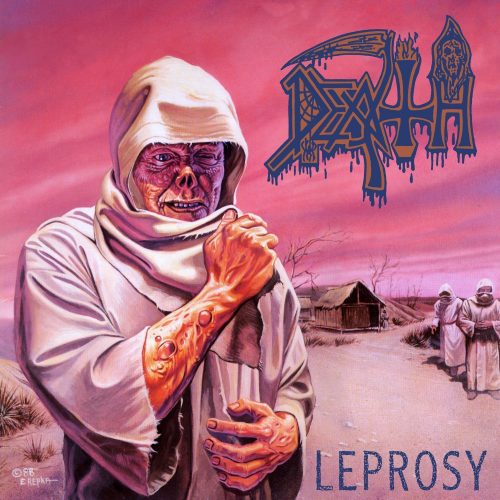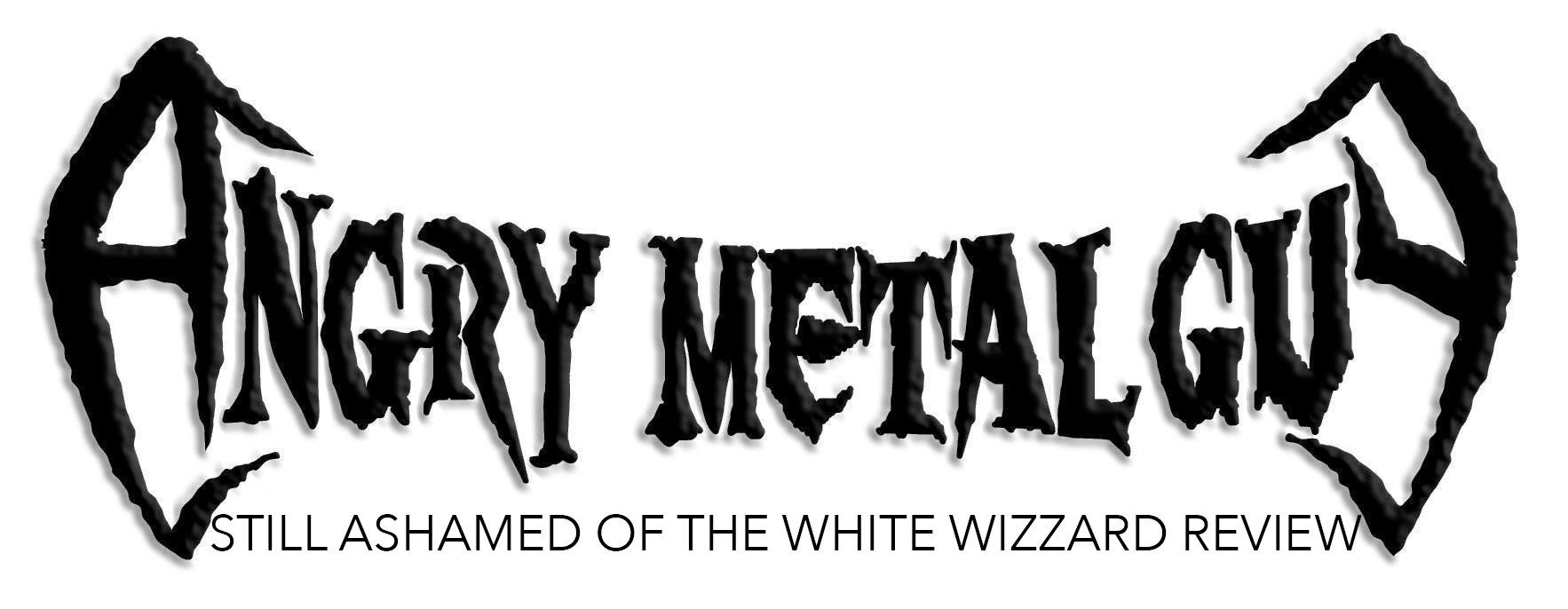 As a lover of progressive music, I often muse on the use of “progressive” as a categorization as averse to adjective. The paradox of unfettered creativity being characterized, and therefore restricted, often seems alien to me. Not so for Chuck Schuldiner, who knew all too well the difference between progression and growth. Long before the intelligentsia of extreme music raised a monopoly on pens, metal sought to forge its own swords. While Death would help define progressive death metal in years to come, it was 1988’s Leprosy that would be amongst the first to channel the genre’s base instincts. In absolutely no way is Leprosy a progressive album. But, as all good follow-ups should, it progressed Chuck’s musical vision by degrees, creating an over-night classic and inviting the rot to set eternally in.
As a lover of progressive music, I often muse on the use of “progressive” as a categorization as averse to adjective. The paradox of unfettered creativity being characterized, and therefore restricted, often seems alien to me. Not so for Chuck Schuldiner, who knew all too well the difference between progression and growth. Long before the intelligentsia of extreme music raised a monopoly on pens, metal sought to forge its own swords. While Death would help define progressive death metal in years to come, it was 1988’s Leprosy that would be amongst the first to channel the genre’s base instincts. In absolutely no way is Leprosy a progressive album. But, as all good follow-ups should, it progressed Chuck’s musical vision by degrees, creating an over-night classic and inviting the rot to set eternally in.
Leprosy’s identity is one infinitely mimicked, rarely matched, and never bettered. The record’s legion of imitators mostly fail by too closely following the album’s legend and what it has come to represent: the ultimate death metal anachronism, belligerent yet uniform. Such is the skewing effect of time, Leprosy was actually crafted upon the principle of more; more violence, more vitriol, more virtuosity. Wreathed in the viscera of debut Scream Bloody Gore, Schuldiner’s initial pound of flesh simply wasn’t enough to sate his charnel appetites. As such, Leprosy took the spattered blueprint of its predecessor and reinforced it with the enhanced sense of musicality Schuldiner fostered throughout his tragically truncated career.
The album attained much of its clarity when Death secured a production credit at the legendary Morrisound Recording, with a lineup who, sans Chuck, would all go on to perform on Massacre’s debut, From Beyond. The immediate change in quality, provided by both studio and musician, is clear. Although Scream Bloody Gore was already advanced for its time, Leprosy ups the ante in almost every way. The opening title track is a veritable smorgasbord of mid-paced riffing only to be abruptly countered by the sheer rabidity of “Forgotten Past” and “Left to Die.” Yet, beyond mere aggression, the improved compositional prowess insistently makes itself known. The album’s pacing displays an advanced sense of mercurial menace and often toys with tempo to gruesome effect. Equally, the adolescent lyrical slasher tropes are still present, but now tempered by Schuldiner’s increasingly prominent social conscience. “Pull the Plug” is the prime example, featuring one of extreme metal’s most iconic riffs accentuated by a morbid theme of assisted suicide. The track’s fabled prowess seeps into the minutia of the entire record and carves its lofty songwriting standards into death metal with each deliberate twist of the blade.

Although Death was known to be a vehicle driven by a singular focus, early on in his career, Schuldiner effected a more democratic process. Guitarist Rick Rozz was able to establish his own influence within the material, and his chaotic note-salad style, combined with Schuldiner’s increasingly technical playing, affords the album much of its frenetic nature, eventually culminating in “Open Casket,” one of the greatest death metal songs ever written. Equally, Bill Andrews’ often underrated drumming can’t be denied, especially during the track’s apocalyptic bridge. His battery of taught fills and livid propulsion drives the finale beneath the rasping refrain, underlining the album’s propensity for wanton savagery.
Thirty years on, it is perhaps difficult for some to experience Leprosy as new and grasp the context of its release. But few albums can age with such scope that their legacy informs an entire genre. As progressive as Schuldiner’s writing became, it always drew from a traditional source, which would eventually manifest more cogently in Control Denied. Long before then, Death deigned to punish both peer and listener alike with a gestalt amalgam of skill and spite, a compound the genre has since magnified and modified but arguably never improved upon.
The poet Arthur Rimbaud once posited that “eternity is the sun mixed with the sea.” I might suggest that immortality is a musical endeavor that transcends its author’s intent, becoming something more in the process. Leprosy and, indeed, death metal, doesn’t just resist the decay of time, but rather embraces it to simultaneously rot and renew in equal measure, like the tuberculoid from which it takes its name. After all, a wise man once said, “the fragile art of existence is kept alive by sheer persistence…”

















